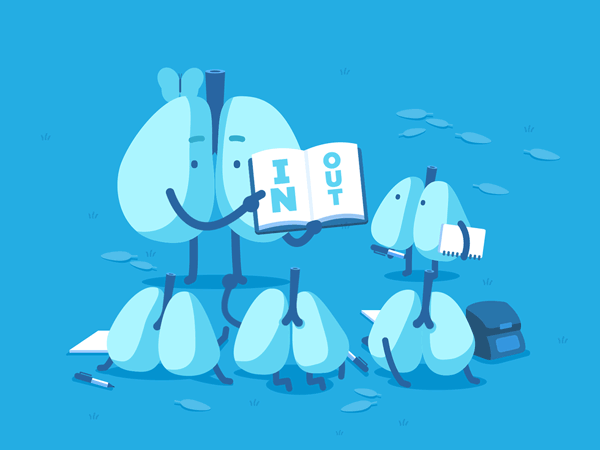1 minute of breathing Sit in a comfortable position and close your eyes, if you are comfort- able doing that. If not, look down at an object on the floor or on the table in front of you. Let your shoulders relax, but sit up straight. Your feet are resting comfortably on the floor. I will start a timer for you to count your breaths for one minute. One breath consists of inhaling and exhaling fully. We are just observing, becoming aware of our breathing, we are not trying to change it in any way. This is not a competition, you don’t have to share your result with anyone when we are done. Just count and observe your breaths. If it helps you to place your hands on your belly and / or your chest, please do so. I will tell you when to stop; try to forget about the time. Ready, start … inhale and exhale at your own pace. Maybe you can observe how your breathing feels in your nose, your throat, your chest, or your belly. If your mind wanders, bring it back to counting. If you lose track, just do your best to figure out the number of your breaths. … one minute later STOP and remember the number of breaths you took during this minute. Next time we do this, take note of any changes in the number of your breaths. Think about why these changes might have occurred. Are you tense, worried, or excited? Are you calm and in the moment? Try this anytime you are waiting in line at a store, stuck in traffic, or just really bored listening to your teacher or boss. You don’t even need a timer. After your practice, you will remember your 1-minute breathing pace and you can do this exercise anytime you want to give yourself the gift of noticing your amazing breath.
Es gibt noch etwas zu entdecken!
Do you sense your nostrils while you are breathing in and out?
Do you feel the changes in your breath?
short,
long,
deep,
shallow,
heavy,
stopping
Do you sense the breath in your belly?
Put your hand on your stomach once in a while.



